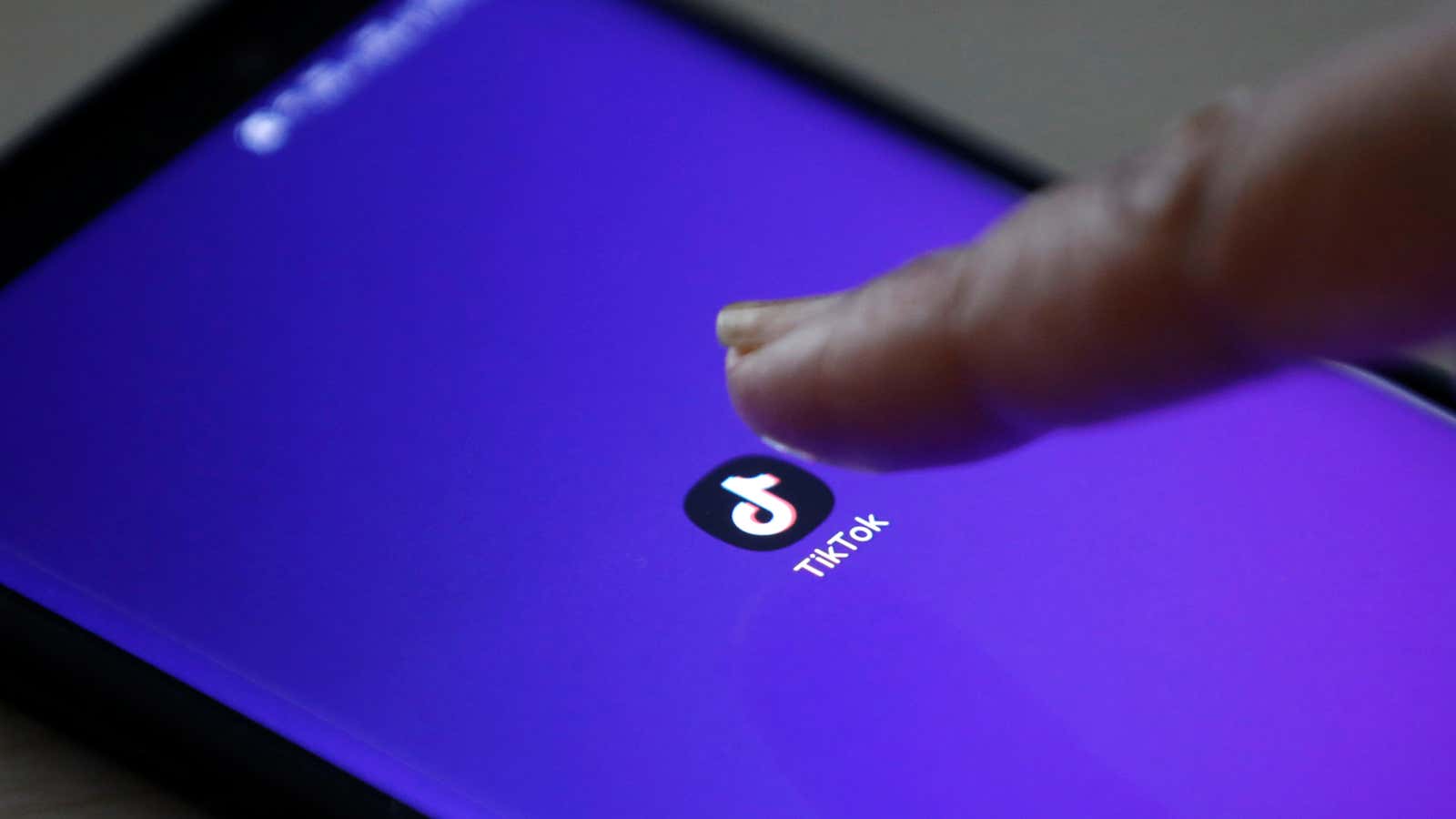Popular video-sharing app TikTok, owned by Beijing-based startup ByteDance, has had a tough few months of late as Chinese tech companies face a backlash in the US and elsewhere. But now, TikTok is trying to prove its overseas content moderation policies are transparent, and it’s enlisting some former US lawmakers in the effort.
TikTok, which became the most downloaded app in the US in 2018, said yesterday (Oct. 15) that two former congressmen—Bart Gordon and Jeff Denham—will be part of a new external team from the international law firm K&L Gates LLP, that will work with the company’s US management. After it is formed, the new committee of “outside experts” will advise and review content moderation policies. The committee will consider issues such as child safety, hate speech, misinformation, and bullying. Gordon chaired the committee on science and technology of the US House of Representatives from 2007 to 2010. Denham served in Congress from 2010 to 2018.
Two-year-old TikTok said it intends to build “an even deeper bench of internal leaders” to tackle the challenges of expansion. “Just over a year after launching in the US, TikTok’s entertaining short videos are making the lives of millions of users and creators a little more fun…It’s amazingly rewarding to know that we’re bringing joy to so many—but it also brings great responsibility on our part. We are committed to meeting this responsibility fully,” wrote Vanessa Pappas, TikTok’s US general manager.
In the past year, TikTok managed to largely stay under the radar of US regulators but it’s recently faced criticism over its content moderation and data protection policies. In February, the company was slapped with a $5.7 million fine by the US Federal Trade Commission (FTC) to settle allegations that it collected information from children under 13. The FTC said this violated the Children’s Online Privacy Protection Act.
TikTok has also increasingly been seen by critics as a new front in China’s overseas information campaign by censoring content that does not please Beijing. The app has been accused of censoring content related to the Hong Kong protests. In September, the British newspaper The Guardian reported that the company told moderators to censor content such as the 1989 Tiananmen protests and the banned spiritual movement Falun Gong. The company said that the guidelines cited by The Guardian had not been used since May, and that its current rules do not reference specific countries or issues.
But such statements do not seem to fully convince Americans, with US senator Macro Rubio recently asking for a US government investigation into whether TikTok posed a national security risk. More specifically, Rubio asked the US Treasury Department’s Committee on Foreign Investment to look into TikTok’s acquisition of Musical.ly, a popular lip-syncing video in the US, for $1 billion in 2017, which was crucial to TikTok’s popularity in the US. Rubio also tweeted that the Trump administration should “fully enforce anti-boycott laws that prohibit any US person—including US subsidiaries of Chinese companies from complying with foreign boycotts seeking to coerce US companies to conform with China’s government views.”
Just like TikTok, other Chinese tech companies have sought help in the past two years from former US government insiders to shape the overseas discourse about them. For instance, Hikvision, the world’s largest manufacturer of video surveillance systems, has tasked former US ambassador Pierre-Richard Prosper to look into its practices in Xinjiang this year. In October, Hikvision and seven other Chinese tech firms were put on a US blacklist that bars them from buying parts and components from US companies. The reason cited by the US commerce department was the companies’ alleged involvement in human rights violations in Xinjiang, where over one million ethnically Uyghur Muslims are held in “re-education” camps. Most of the companies denied the accusations.
Huawei, the world’s second largest smartphone maker, was also put on the US trade blacklist in May over national security concerns.
